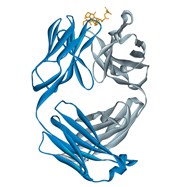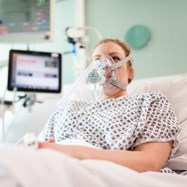University of Oxford - Using science to help the UK reopen safely
Researchers at the University of Oxford used cutting-edge vaccine technology which had previously been used to produce candidate vaccines against pathogens such as flu, Zika and Middle East Respiratory Syndrome (MERS) to create a safe and effective vaccine against Covid-19.
Developed at the University of Oxford’s Jenner Institute, the Oxford vaccine uses a viral vector based on a weakened version of a chimpanzee adenovirus (common cold virus) containing the genetic material of SARS-CoV-2 spike protein. After vaccination, the surface spike protein is produced, which primes the immune system to respond if exposed to Covid-19.
In 2020, the University of Oxford signed a global development and distribution deal with international pharmaceutical manufacturer AstraZeneca which included a commitment to provide doses of the vaccine to low-income countries at cost price. AstraZeneca has committed to the joint vision of not seeking to generate profits from the distribution of the Oxford vaccine for the duration of the pandemic.
After progressing quickly through safety trials, the vaccine was approved for emergency use in the UK during December 2020 and is now in use in more than 165 countries, with over 1 billion doses delivered around the world. Follow-up studies have shown two doses of the Oxford vaccine as highly effective at preventing serious disease and hospitalisation among vaccinated individuals exposed to the virus, including those who previously would have been at high risk of severe illness. The vaccine also generates a robust immune response against the more transmissible variants which have emerged in 2021.
Analysis from Public Health England suggest that by May 2021, the vaccine rollout in the UK had prevented 11,700 deaths in people aged over 60 in England. An estimated 33,000 hospitalisations of people aged 65 and over had also been prevented. The Oxford vaccine is playing a crucial role in protecting public health and enabling the government to roll back restrictions on social interaction. By protecting workers, the vaccine program is also playing a critical role in supporting the economic recovery.
-
Hamir Patel
hamir.patel@russellgroup.ac.uk
020 3816 1316
-
Adam Clarke
adam.clarke@russellgroup.ac.uk
020 3816 1302
 X
X


